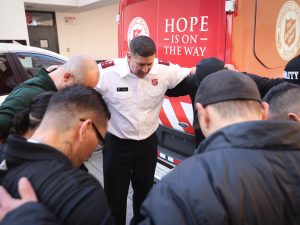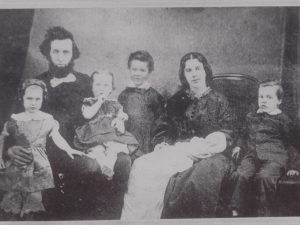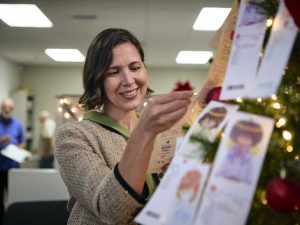Since 1943, we’ve accepted that people are motivated to achieve certain needs, moving on to the next only after one is fulfilled. Psychologist Abraham Maslow defined these needs in a hierarchy that is often depicted within a pyramid, ranging from our basic needs—both physiologically and emotionally—and our growth needs, or self-actualization.
He asserted that the longer a need persists, the stronger it becomes and that often progress is disrupted by failure to meet lower level needs.
Not surprisingly, the longer a person is without food, the more hungry he becomes.
The United States Department of Agriculture Economic Research Service found that an estimated 14.3 percent of American households were food insecure at least some time in 2013, meaning they lacked access to enough food for an active, healthy life for all household members.
The Pew Research Global Attitudes Project found in 2013 that 24 percent of Americans said they had difficulty affording food during the past year.
Research has shown the sudden or gradual loss of one’s home can be a stressor of sufficient severity to produce symptoms of psychological trauma.
According to the U.S. Department of Housing and Urban Development (HUD), more than 1 million people are served in HUD-supported emergency, transitional and permanent housing programs each year. Yet, the total number of persons who experience homelessness may be twice as high.
And that’s just two of our most primary needs.
The nation’s poverty rate dropped in 2013 for the first time since 2006, to 14.5 percent of the population from 15 percent in 2012, believed to be a result of an increase in people with full-time jobs, according to the U.S. Census Bureau. That means there were 45.3 million people living below the poverty threshold—say an annual income of less than $23,624 for a household with four people, including two related children.
“It is quite true that man lives by bread alone—when there is no bread,” Maslow is credited as saying. “But what happens to man’s desires when there is plenty of bread and when his belly is chronically filled?”
In finding self-actualization, Maslow believed that a person comes to find a meaning to life that is important to them. This continual process of “becoming” leads people in different directions based on their unique motivation. He said it occurs when a person experiences the world for what it is and has feelings of joy and wonder.
Isn’t that what we want for all people?
In this issue, Caring tackles the issue of poverty—what affects it, what it means to live in poverty and ideas to find the end of it.
If we can do something about it, as Dr. Eric Handler, deputy health officer in Orange County, Calif., says in relation to ending hunger in the area (“Feed. The. Need.,” page 26), then why aren’t we doing it?
Let’s come alongside people to meet needs so that we each may find joy and wonder and live to do good.












